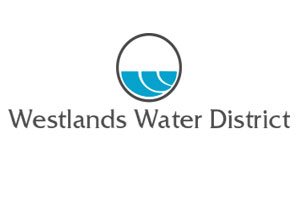Westlands Water District Responds to Disappointing Central Valley Project Water Allocation Update
Courtesy of Westlands Water District
The U.S. Bureau of Reclamation (Reclamation) announced an update to water allocations for Central Valley Project (CVP) water users. The revised allocation for South of Delta agricultural contractors, including Westlands Water District (District), was updated with an increase of 5 percent from 35 to 40 percent of the total water contract –another incredibly disappointingly low allocation for District water users.
“With the state’s reservoirs and snowpack at above-average levels and much of the state out of drought conditions, this meager increase in allocation continues to present unnecessary and unjustified hardships for the hard-working people of our District,” said Allison Febbo, General Manager, Westlands Water District. “Water from the Central Valley Project is the lifeblood of our farms and communities that rely on the crops they grow. If we can’t expect transparency in the process and a robust water allocation reflective of the hydrology during years when our reservoirs are full, then what can we expect for the future of our region?”
Since the initial allocation of 15 percent at the end of February, Westlands has noted several conditions that are incongruent with a water supply allocation lower than 50 percent. For instance, in comparison of conditions this year to 2018 where we had a 50 percent allocation, we are now seeing substantially more Delta outflow, better snowpack, and generally equivalent storage in upstream reservoirs.
To the best of our understanding, the allocation is being held below 50 percent for two reasons: uncertainty in hydrology and corresponding conservatism in water management; and anticipated operational constraints for the protection of fisheries in the Delta. We look forward to working with Reclamation, consistent with requests made earlier this spring by congressional leaders, to appropriately balance risks to water supply. With regard to restrictions caused by fisheries concerns, Westlands continues to seek clarification and documentation for these decisions. At present, and based on available information, we believe the decisions will not result in a measurable effect on the populations of the species, despite their significant cost to water supply. We feel this is a missed opportunity to celebrate what appears to be a healthy population of fisheries and does not warrant the high cost or alarmist actions.
Perhaps most concerning to Westlands is that this current experience raises concerns for how the regulatory agencies will approach the promised improvements to transparency, science-based decisions, and adaptive management under the pending Biological Opinions and Voluntary Agreements. Westlands remains vigilant in the effort to improve collaborative water supply decision-making and the transparency and accountability for those decisions.
We remain hopeful that Reclamation will increase our water allocation so that the District can continue to meet California’s – and the nation’s – food supply and food security needs.










